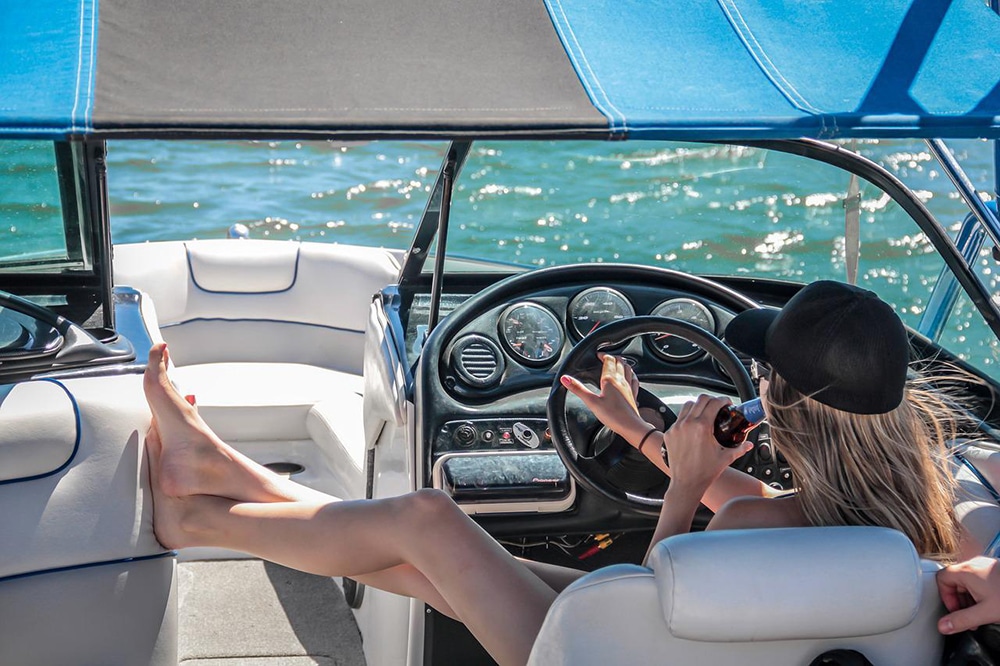What Are the Leading Causes of Recreational Boating Accidents?

As the weather gets progressively warmer over the next few months, many individuals will undoubtedly find themselves looking for ways to cool off. One way people tend to do that here in Mississippi is by heading down to the gulf or one of our state’s many lakes, rivers, and other bodies of water.
You need to keep a few details in mind if hitting the water is in the cards for you this spring and summer. You may want to apprise yourself of the leading causes of recreational boating accidents and how often they occur.
What Constitutes Recreational Boating?
The terminology “recreational boating” refers to the use of watercraft such as the following for leisurely purposes:
- Airboats
- Sailboats
- Inflatable boats
- Tenders
- Wave runners or jet skis
- Canoes
- Speedboats
- Paddleboats
- Kayaks
- Pontoon boats
- Yachts
Some recreational boats are manually powered while others run off of motors. There’s quite a variation in sizes of watercraft that fit into the recreational boat category as well.
How Common Are Recreational Boating Accidents?
The most recent data published by the U.S. Coast Guard (USCG) detailed that there were 5,265 recreational boating accidents in 2020. An estimated 3,191 of these incidents resulted in injuries, while 767 of them were fatal.
Statistics published by the U.S. Army suggest that an estimated 80% of boating fatalities occur in boats measuring 25 feet or less. This piece of data should make it clear that boat size is one of the leading factors of recreational boating accidents.
Why Do Most Recreational Boating Accidents Occur?
A 2020 USCG report details some of the primary contributing factors that resulted in boating accidents that year. The top five contributors that made the USCG’s list included:
- Boater or skipper inexperience
- Speeding
- Operator inattentiveness
- Machine failure
- Improper lookout
The study authors determined that 77% of fatal boat accidents involved a skipper who had not undergone boat safety instruction. An estimated 75% of fatalities were also attributable to drowning. At least 86% of the individuals who lost their lives were not wearing a life vest.
The top three water vessels involved in fatal accidents included:
Speedboats (also known as motorboats): 50%
Kayaks: 15%
Pontoons: 9%
The water vessels listed above, personal watercraft (like Sea-Doos), and cabin or open-style motorboats were all listed in the USCG report as where most of these fatal boating accidents occurred.
Data previously published by the U.S. Army also listed boating under the influence of drugs or alcohol as another one of the leading causes of recreational boating accidents.
Capsizing Dangers Recreational Boat Users Face
When most people think about a boating accident, they envision something akin to an auto collision where there’s vessel-on-vessel contact or when a boat strikes a stationary object, disabling it. While these are certainly some of the more common types of accidents, capsizing incidents are also surprisingly common.
Here are a few key factors motorboat operators should understand about their smaller water vessels:
- Weight or load limits: Boat operators may attempt to carry too many passengers or a heavier cargo load than they should, leaving them vulnerable to capsizing as the boat’s upper edge approximates the surrounding water level.
- Dangers associated with operating in certain weather conditions: Boaters should always check weather reports before venturing out into the water. An intensifying storm may make a sea or ocean particularly rough, causing the boat to be overcome with water. The excess water tends to weigh down the water vessel and can submerge its controls underwater, rendering its motorized components non-functional.
- Operating with inadequate or poorly functioning equipment: The smaller the boat, the more likely it is to fill up with water. Most speed boats are equipped with pumps capable of eliminating water quickly enough if a wave overcomes it. It is possible to find pumps that can more effectively eliminate water faster than others. Boaters can ensure their passengers’ safety by regularly servicing their equipment and ensuring it’s the best option for how they plan to use their water vessel.
Boating Under the Influence
According to the USCG, at least one-third of all fatal recreational boating accidents are attributable to alcohol use.
Both boating and driving under the influence are illegal in Mississippi, but boat operators often feel the effects of intoxication differently than drivers.
Intoxication can cause boat operators to experience cognitive impairments, an inability to focus, slowed reaction times, equilibrium issues, and lapses in judgment. Intoxicated skippers may also experience added effects that are a bit different from what drunk or drugged drivers contend with, including:
- Diminished inner ear functionality, resulting in vertigo-like symptoms
- Challenges distinguishing between colors
- Reduced night or peripheral vision
Many falls overboard, vessel capsizing accidents, or grounding incidents (a boat running aground on sand or rocks) occur when boaters are intoxicated, causing adverse outcomes.
What Your Legal Rights Are Following a Boat Accident Resulting in Injuries
While there are criminal laws in place to hold boaters liable for boating under the influence or otherwise recklessly operating their water vessels, the civil court system is where individuals who have suffered injuries or lost a loved one petition for damages for their losses. If you were injured in a boating accident caused by someone else’s negligence, you may have additional legal options that you can pursue.
To learn about these potential options, don’t hesitate to get in touch with Pittman Roberts & Welsh, PLLC today. Your initial consultation with our attorneys is free. Send us a message to schedule one now.







